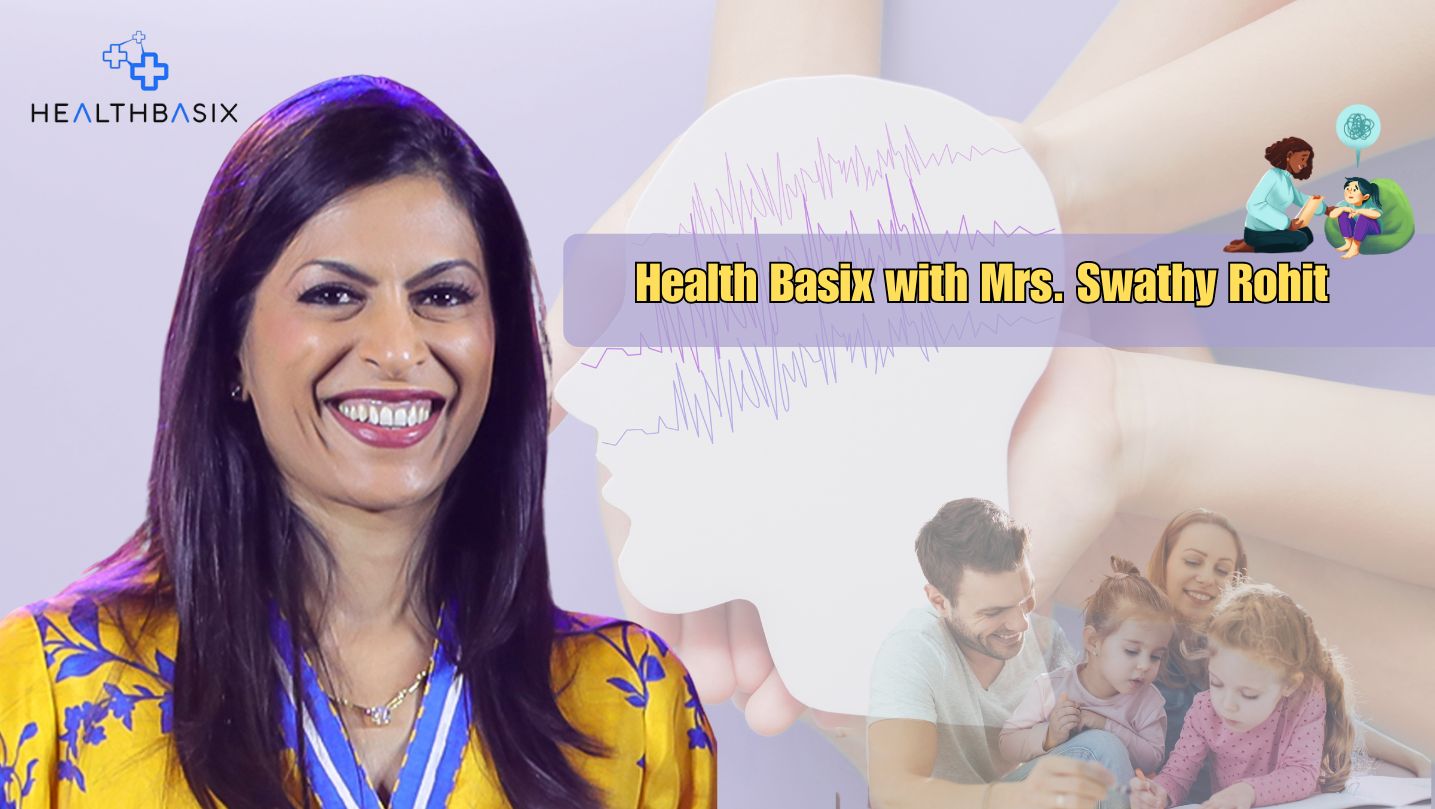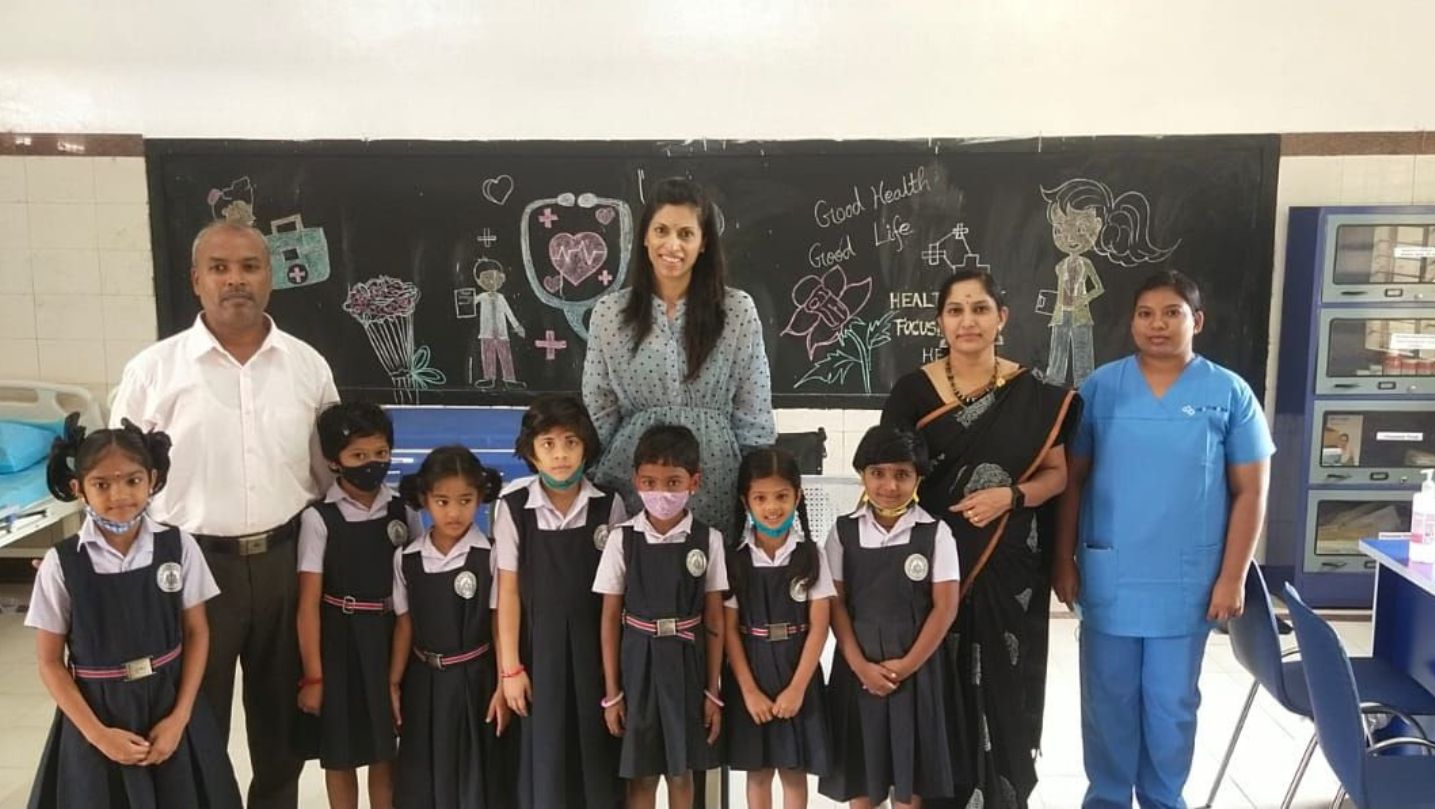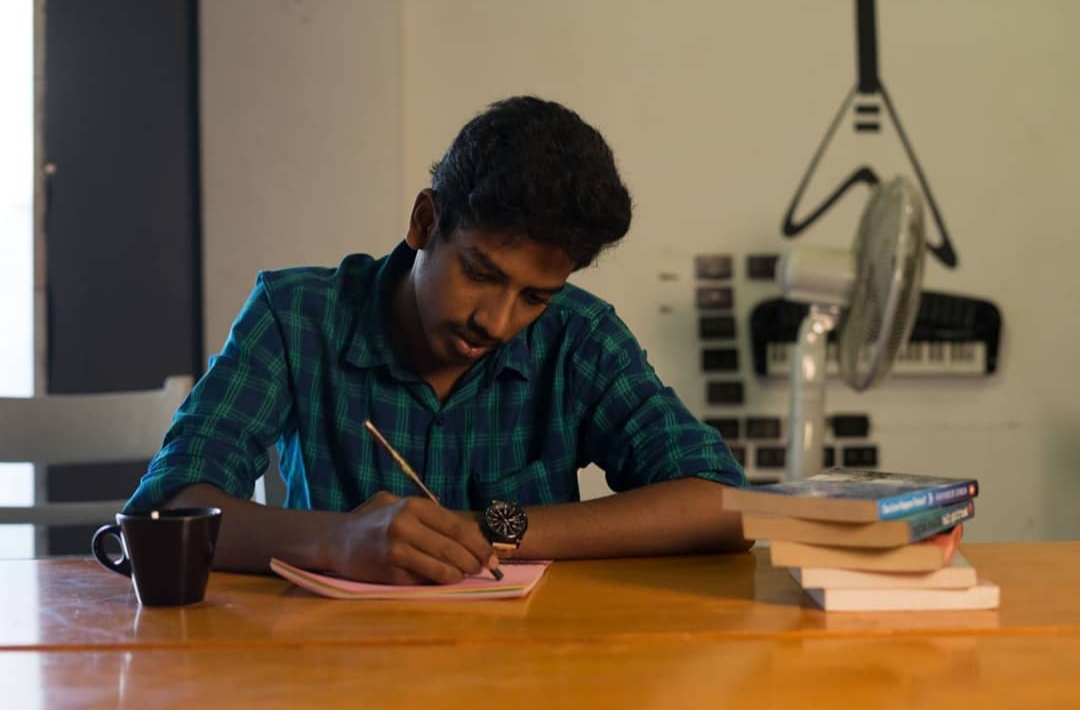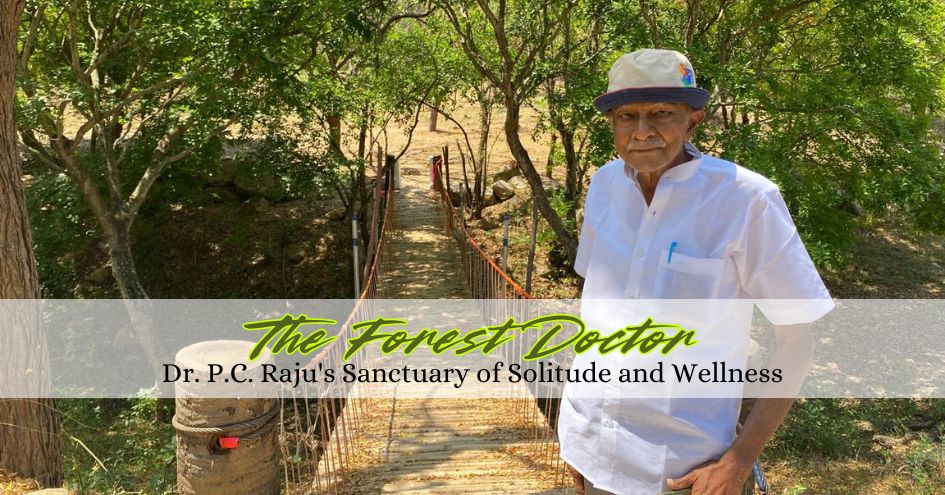Health Basix with Mrs. Swathy Rohit
"A staggering one in five children in India is pre-diabetic," revealed Mrs. Swathy Rohit, the visionary founder of Coimbatore-based digital health platform, Health Basix. Our conversation with Mrs. Rohit painted a stark picture of the nation's youth grappling with complex health challenges. Yet, she emphasized that these intricate problems often hold surprisingly simple solutions. Health Basix is at the forefront of discovering and implementing these solutions indigenously. By working with 3.2 lakh children across 38 cities, the platform is crafting tailored health interventions rooted in the very design of India, of the traditional wisdom and of the modern science.
“I think COVID really brought to light what happens when everyone falls sick in large numbers. During the pandemic, families were confined together, and we had the chance to closely observe our children's lifestyles and health. This experience highlighted how crucial it is to pay attention to what we eat and how we live”, said Mrs. Swathy Rohit.
When we look around today, we see a significant shift in people's health, particularly among children. There's an alarming rise in obesity and diabetes among young ones. Extending on this thought, Mrs Swathy Rohit shared, “When I was five, I don't remember seeing a single overweight person. Today, one in five children in India is predicted to develop diabetes. If a child is obese, they have a 70% chance of becoming diabetic. Diabetes is not just about taking medication; it can reduce life expectancy by 15 years and lead to complications like strokes, blindness, and a significantly poorer quality of life.”
India should look out for diabetes and Obesity. But why? Where did we go wrong. Mrs Swathy Rohit has an interesting analogy. India has become the second highest nation for obese children, with 16 million affected. This is a dramatic shift from our cultural heritage of balanced diets and physical activity. Nowadays, 67% of what children consume daily is processed food. This dietary change is setting the stage for widespread health issues. In adults, the prevalence of diabetes is even higher, with one in four affected. Obesity leads to numerous health problems, including orthopedic issues, and significantly impacts the quality of life from a young age.
The misconception that children can eat whatever they want and fix their health later is dangerous. Diabetes in adults often stems from lifestyle choices made during childhood. If we don't start addressing these issues early, we are setting up our children for lifelong health struggles. The notion that we are a healthy nation is misleading; we are feeding our children unhealthy, processed foods and excessive sugar.
Mrs Swathy Rohit further said, “We need to educate our children about good nutrition early on. It's easier to teach children than to change the habits of adults. Alongside physical health, mental health is another critical issue. Our cultural strengths can help us address this. We have a societal structure that still cares deeply for each other, and this can be leveraged to support our children's mental and emotional well-being.”
The cultural westernisation and losing our original sense of parenting had contributed a lot to this. Parents today often lack confidence in their decisions, which children can sense. It's crucial for parents to be firm and confident in their choices, as this builds trust and security in children. Our societal fabric still supports communal care, and we should use this to our advantage. Parents, relatives, and even community members play a role in noticing and addressing children's issues.
“We need to return to our roots and traditions that emphasized holistic well-being. India has a unique societal structure that can support children's health and resilience. We should focus on building a strong future by prioritizing our children's physical and mental health. This will define India's progress in the coming decades”, declared Mrs. Swathy. “Ignoring these issues will lead to a future where our healthcare system is overwhelmed. We need to find scalable solutions to prevent health problems from arising. This involves working with schools to create inclusive environments and addressing developmental issues like intellectual disabilities and autism, which are on the rise. Our goal is to ensure every child has the opportunity to grow up healthy and capable, contributing positively to society”.
Health Basix was started to focus on the human element in the health arena. “Our economic growth should not come at the cost of our children's health”, Mrs. Swathy firmly believes. If our healthcare expenditure skyrockets due to poor health, our progress will be hindered. We need to prioritize prevention and create an environment where our children can thrive physically and mentally. India has a significant opportunity to correct course now. We must leverage our societal strengths, educate our children, and support their development to build a healthier, more resilient future.
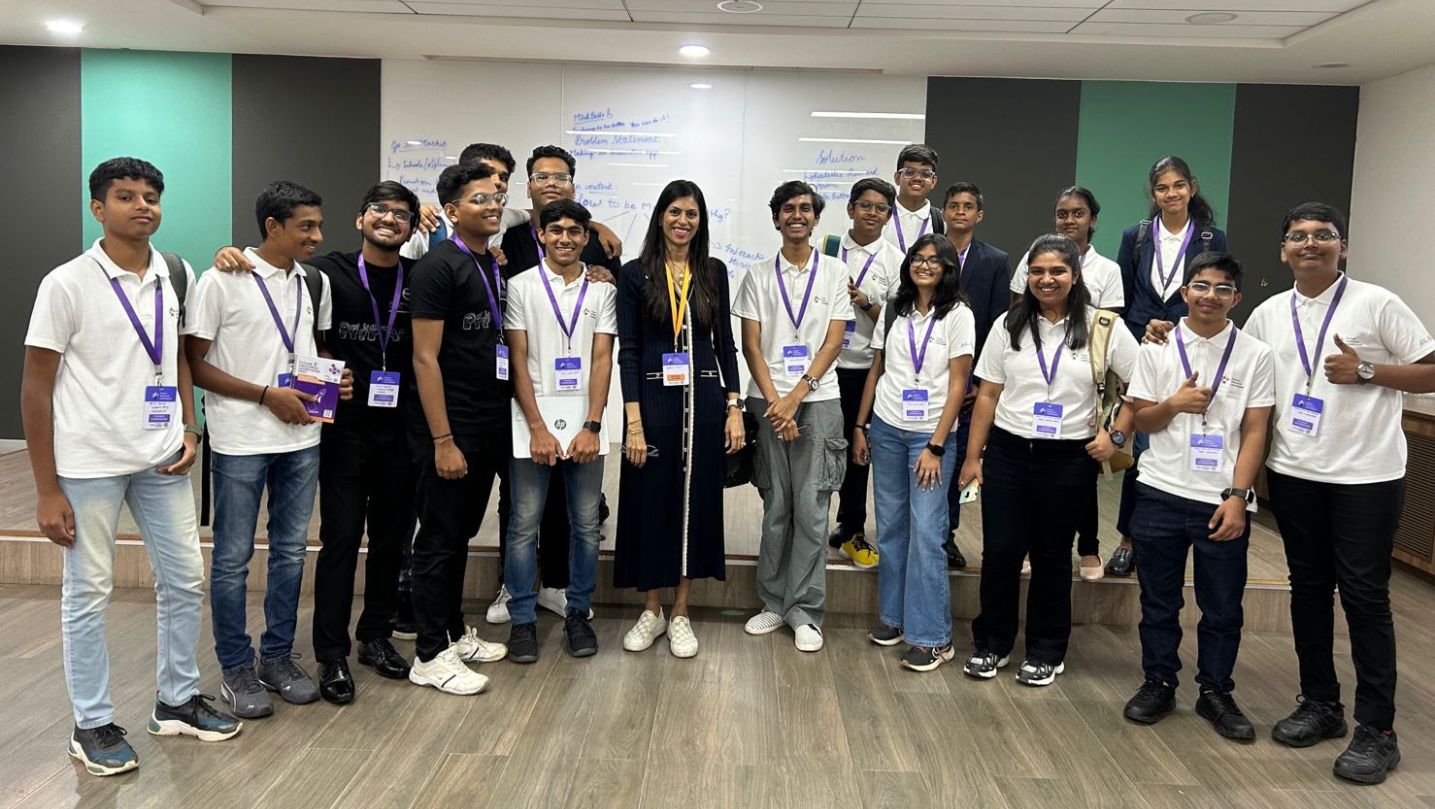
As a household solution, Mrs Swathy suggests parents to look into certain aspects of their child’s behavior. “How much a child moves, how they actually breathe. It's not great rocket science. Fix the basics: sleep, nutrition, movement, and breathing. I have an 18-year-old son, and we focus on these basics. Nutrition is crucial. Teach your child how to balance their plate. Consistency in these basics makes everything else easier.”
“More importantly the use of technology. If you ask me, I think the West is doing a great job by actually limiting access to technology. Give me one good reason why a child needs tech before their 14th birthday. Social media? I think the country should wake up to this. Child monitoring? Why is it that you try to monitor the child so much? Let them grow as children. How will they even thrive and learn skills on their own if we give them everything, including social media? If I had the power, I would limit access. No device below 16, no phone below 14, and minimal tech use overall.”
Mrs. Swathy suggests more of an household approach rather than an artificial traditional approach. “Meditation, for example, what does it mean to a child to meditate?” she questions. “It can be meaningless unless we explain it. Today, we need to practice it because that neural pathway needs to get formed. When you need it, it will work. Simply saying, ‘I want to run a marathon’ and starting to run without training will likely lead to a heart attack. Similarly, unless we help our children train right, when they fall multiple times, they should still be able to get up and have confidence.”
In the course of this discussion, we further moved into the topic of Drug addiction and Alcoholism. “Drugs and alcoholism are byproducts of not understanding how to deal with emotional stress”, believes Mrs. Swathy. “Why do we turn to drugs or alcohol? Food can be an addiction too. It's because we are not able to deal with current situations. If you fix the basics, you can come back to normalcy more easily. Show children what happens to their brains and bodies when they consume these substances. We need smarter ways to communicate. For instance, an anti-tobacco campaign showed the progression of addiction visually, which had a better effect. Communicate better to children instead of just saying - don’t.”
Provided we fix the problems on household level, what does a country need on a broader level? Answering this question, Mrs. Swathy sadly quoted, “There are very few specialists in the current health setting. We lack enough child psychologists and specialists. It’s not about affordability or accessibility. It’s about the willingness to understand and help. Schools and parents are waking up to this and its time the country does the same.”
“Suicides among children are high, which should make us ashamed as a society for we are pushing our children to believe that suicide is the only solution. Children’s problems might seem simple to us, but they are not. They might need therapy to develop coping skills. Serious intervention is sometimes necessary, but it can all be managed merely with the right support and guidance.”
We were awed to learn how much health basix has done for the child health. Health basix focuses on the principles rather than the approach. When we asked about how many children has health basix touched so far, she said, “We work with 3.2 lakh children in about 38 cities - worked with, not just touched. We work with them throughout the course to ensure they are in good health - physically and mentally. Continuous effort is key. One-time fixes don’t work.”
It is commendable that Mrs. Swathy Rohit has contributed to the child health. The conversation showed us how hard the team Health Basix has worked. To women who dream of a career in health sector or social entrepreneurship, Mrs. Swathy says, “It’s not easy. The startup ecosystem can look glamorous, but it’s not. You need to love what you do because you’ll have to give up a lot. There is no work-life balance. It’s either work or life. For women, societal expectations make it harder. Raising capital is especially difficult for women. Women have to fight harder for their place at the table. However, we need more women. In my company, Health Basix, we are 97% women.”
The pandemic exposed deep-rooted societal health issues, but initiatives like Health Basix offer a beacon of hope. As Mrs. Swathy rightly emphasizes, our children are the nation's future. It is the responsibility of parents, teachers, professionals, and even bystanders to ensure that no stone is left unturned when it comes to children. The Verandah Club wholeheartedly supports Mrs. Swathy and the Health Basix team in their mission to build a healthier tomorrow. We invite our dear readers to join us on this journey toward a brighter future for our children.
|| Dharmo Rakshati Rakshitah ||
Vigneshwaran, Senior Correspondent of TheVerandahClub.com is both a skilled digital content writer and marketer by profession, as well as an avid independent writer driven by his passion. His literary talents extend to crafting beautiful poems and captivating short stories including the Sehwag Tales series. In addition to these creative pursuits, he has also authored a book titled "Halahala," which can be found on Wattpad.
